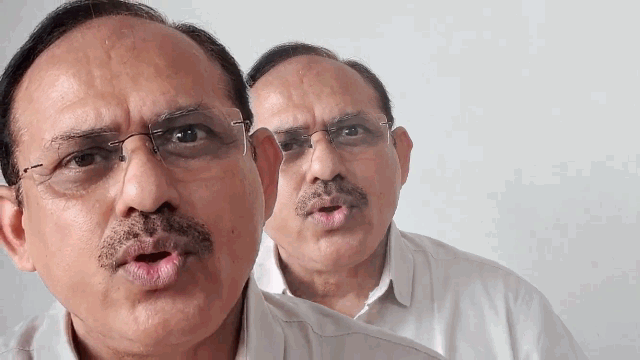“The greatest pleasure in life is doing what people say you cannot do.”-Walter Bagehot
The pain-pleasure principle lies at the core of everything you do in everyday life. Your belief and value systems are built upon this principle. Your habits are built on subject principle. Every decision you make in life is solely dependent on either pain or pleasure. Your behaviour or action is based on your past experience of pleasure and the pain.
Past Experience Of Pain And Pleasure
Consider the example of lion in the circus. The lion is given pain by hunter, even sometimes charged with minor electrical current. He is moulded for certain action or behaviour with constant pains. The lion wants to avoid the pain and therefore it does the determined action by the trainer. With the previous experience of unbearable pain it just obeys the command.
The past experience of human is also like other animals. His pains of past which has given emotions of anger, hurt, stress, anxiety, overwhelm, frustration, depression, etc. have already make marks in subconscious mind and therefore his present behaviour or action is derived accordingly. His pleasant experiences of the past resulted in emotions of happiness, joy, enthusiasm, curiosity, love, gratitude, excitement, etc. are definitely responsible for his present thought process and actions.
Role Of Central Nervous System
During my early childhood when I put my finger in the electrical plug, it gave me jerk. I was not sure what happened. So again I checked with a thin iron rod, still it gave me shock. Later on I was explained by my teacher that electrical current passes though metal. During my masters in psychology I studied that when electrical current is passed through our body which is also good conductor of electricity, it reaches to central nervous system after quickly travelling though thousands of neurons from one to another and so on. Neurons or nerve cells are the primary components of the nervous system. They send and receive information in the form of electrical signals from the sensory organs, facilitating communication with the brain. The constant chatting between body and brain ultimately decides which signals are good and which are bad. In other words which experiences are pleasant and which such experiences are painful. Just like every other cell, neurons have a cell body, often referred to as the soma, which contains the nucleus. Various branches or finger-like structures extend from opposite sides of the soma. An axon is the longer protrusion, while dendrites are the smaller branch-like structures on the other side of soma.
Neuro Transmission
Neurotransmission is the process by which signalling molecules called neurotransmitters are released by the axon terminal of a neuron and bind to and react with the receptors on the dendrites of another neuron (the postsynaptic neuron) a short distance away. Some neurons can release more than one neurotransmitters at the same time, the other being a co-transmitter, in order to provide the stabilizing negative feedback required for meaningful encoding, in the absence of inhibitory interneurons.
The transmission process very fast compared to the speed of blood flow, with some myelinated neurons conducting at speeds up to 120 m/s (432 km/h or 275 mph). You can imagine the speed of neuro transmission by comparing to athlete who runs the 100 meter with 10 seconds. You suppose that this transmission is almost 10 times than the speed of athlete.
I, later on, realised after my Neuro Linguistic Programming training how I was able to remove my hand so quickly from a live electrical point to nullify the counter effect of the shock. The brain is believed to possess such 86 billion neurons on an average. And therefore, the complex process of such transmission is possible.
Pain And Pleasure Psychology
People move toward pleasure because they find happiness and they move away from pain because they are not happy with suffering. This is literally the whole sum of the psychology of why people do things they do.
Our mind is constantly working day and night without rest to weigh out the pain and pleasure by every effort we make and it is really working to get the cause benefitting analysis and making efforts to maximize the pleasure and minimize the pain. Even you try to kill mosquito with your hand hitting on your forehead even when you are sleeping because your mind especially subconscious mind is working. This is simple in every piece of behaviour.
I studied in clinical psychology that If one has ability to control the pleasure and pain of a person then one can get anything done from the person. We have generally understood pain and pleasure in very broad terms and we usually narrow down it to physical pain and physical pleasure. But as a matter of fact any easiness or uneasiness is definitely a concern of pleasure or pain principle respectively. You must have felt when you are with your good friends, things turn up to the pleasure principle and say, for instance, it definitely turns to the pain principle when you have been forced to achieve some target in your office by your boss. However threshold can vary from person to person.
Another example of pleasure and pain you must have experience during public speaking. When you have to present yourself in front of audience, you may perceive the pain that you may forget the lines and public may insult you. But when you repeatedly speak in practice, your pain vanishes. With regard to the pleasure, one experience that when you provide great values and people transform their lives, the positive feelings will perceive the pleasure state.
Exemptions
Sometimes some of the social workers suffer pain to give pleasure to other people. In other way they have pleasure to minimise the pain of others.
Take Away
1. Psychologically it is believed that you can perform any task twice more to avoid the pain than to gain pleasure.
2. There is nothing like unselfish behaviour.
